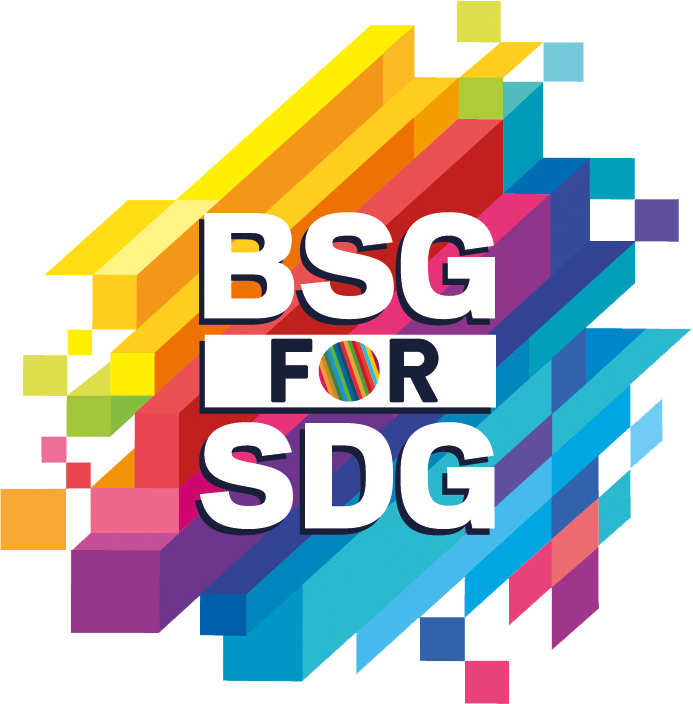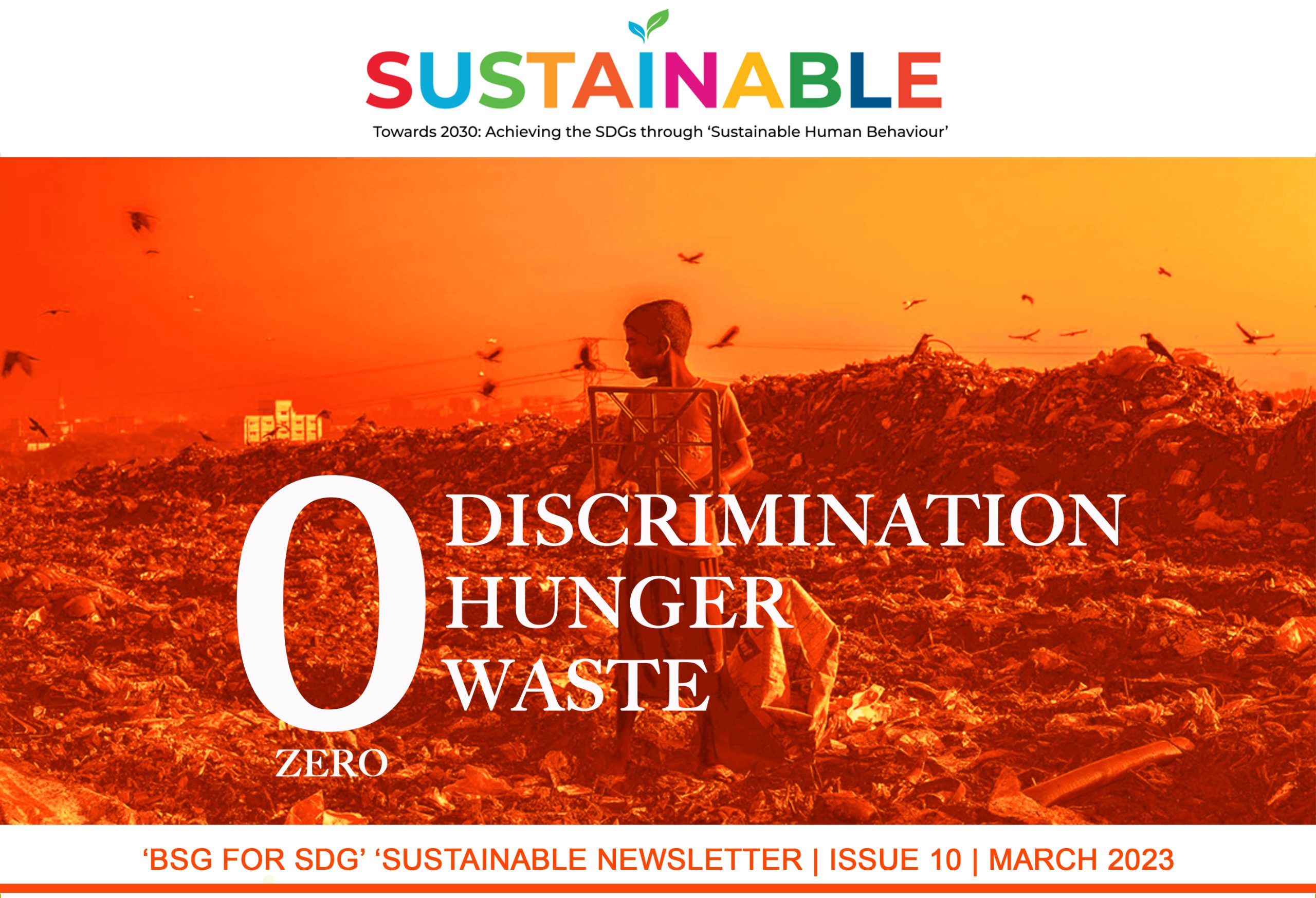
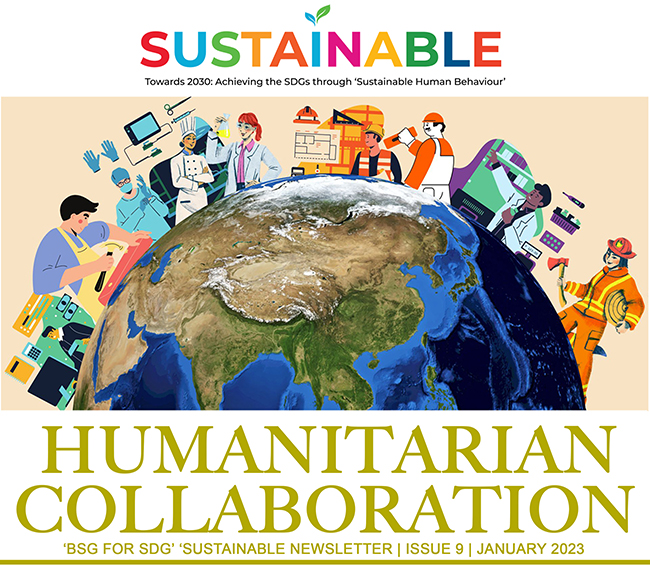
Greetings from BSG Chairperson Mr. Vishesh Gupta
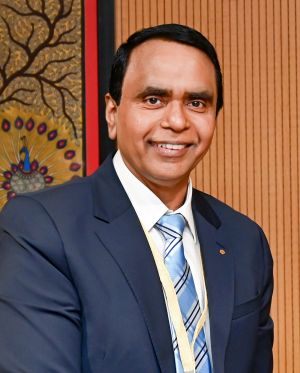
My dear readers of the ‘BSG for SDG’ SUSTAINABLE Newsletter, I extend my warm greetings to each of you and your family members.
Life is the greatest of all treasures and ready availability of nutritious food is essential for our sustenance and vitality. The Food and Agriculture Organization of the United Nations (FAO) has declared 2023 as the International Year of Millets to address the problem of rising food insecurity around the world, exacerbated by the war in Ukraine, a major food grain producing country. This year also marks the mid-point of the 2030 global development agenda as enumerated in the UN Sustainable Development Goals. Despite significant setbacks on various fronts due to the COVID-19 pandemic and other global crises, this year also serves as an inflection point to re-envision and rebuild the world, one step at a time.
This tenth edition of the ‘SUSTAINABLE’ newsletter focuses on the theme – “Zero Discrimination, Zero Hunger and Zero Waste”. It probes these seemingly disparate global crises to reveal their overlapping nature, including how discrimination and inequality worsen hunger, malnutrition and waste management. More importantly, we hope this issue will inspire you to take action to address the various manifestations of discrimination and hunger in your local communities. I look forward to hearing your views and experiences on building a zero discrimination, zero hunger and zero waste home and community.
Warm Regards
Vishesh Gupta
BSG Chairperson
Discrimination, hunger and waste are global challenges that have far reaching ripple effects that are detrimental to the creation of peaceful societies.
Discrimination refers to the unfair or prejudicial treatment of people and groups based on characteristics such as, but not excluded to race, gender, age, or sexual orientation. 130 million girls globally remain out of school (Global Citizen). Women in rural parts of Africa spend 40 billion hours a year collecting water (World Economic Forum). Employment rates are lower for men with disability (53%) and women with disability (20%) than for men without disability (65%) and women without disability (30%) (World Health Organisation). While through appropriate support those with disability can participate as anyone else in society, 40% of the population does not have their requirements for assistance met (World Health Organisation). While there are a number of statistics to highlight discrimination, at an individual level, discrimination must be regarded as a public health issue. Research has found that the experience of discrimination can lead to a cascade of stress-related emotional, physical, and behavioral changes. (American Psychological Association)
Discrimination also reflects in the distribution and access to food. According to the State of Food Security and Nutrition in the World 2022 report, as of 2021, as many as 828 million people around the world experienced chronic hunger, an increase of 150 million since the outbreak of COVID-19 pandemic (Food and Agriculture Organisation). The war in Ukraine has had a snowballing effect on global food, fuel, and fertilizer prices, which might further worsen hunger in 2023 and beyond. These compounding crises pose a direct affront to human dignity. Women are more likely than men to experience food insecurity, and this gender gap is growing – almost one in three women experienced moderate or severe food insecurity in 2021 (UN Women).
Further, the hunger and waste crisis are also inextricably interlinked. Around one third of food produced for human consumption annually is wasted or lost — this amount of wasted food can feed 3 billion people (Earth.Org)! Such quantities of food waste further have repercussions on people and the planet. The water used to produce this wasted food could be used by 9 billion people (Earth.Org)! To add to this, a small percentage of all food wastage is composted, while much of it ends up in landfills. Methane emissions from landfills represent one of the largest sources of greenhouse gas emissions from the waste sector (Food and Agriculture Organisation). If food loss was a country, it would be the third-largest greenhouse gas emitter, behind China and the United States (United Nations Environment Program).
Food waste only adds to the growing menace of waste. The world generates 2.01 billion tonnes of municipal solid waste annually, and at least a third of that is not managed in an environmentally safe manner. This figure is expected to grow to 3.40 billion tonnes by 2050. Of this waste, around 37% goes to landfills, 33% as open dumps, 19% is recovered through recycling and composting, and 11 percent is incinerated (World Bank). There is an urgent need to push economies to the goal of sending no waste to landfills, incinerators, and to stop open dumping including in the ocean. Ocean plastic pollution is a matter of grave concern. While we have heard about the Great Pacific Garbage Patch, this impact is not happening in isolation – according to estimates – there will be more plastic in oceans than fish by 2050 (Ellen MacArthur Foundation)!
The scale of these challenges can seem overwhelming unless we collectively create a vision of a future where discrimination, hunger and waste have been completely resolved. The late peace scholar Dr. Elise Boulding in a dialogue with SGI President Daisaku Ikeda shared her realization that unless one has a clear and specific vision of what a peaceful society looks like it will be almost impossible to bring people together in the pursuit of peace (2020 Peace Proposal). Creating a shared vision of zero discrimination, zero hunger and zero waste is crucial to map out a blueprint to take proactive steps towards the construction of that reality. President Ikeda in his 2020 Peace Proposal says, “By engaging in the challenge of construction, we find a third path forward, one by which we can avoid falling prey to either an egocentric indifference to problems that don’t directly affect us or a pessimistic paralysis in the face of problems that seem too overwhelming.”
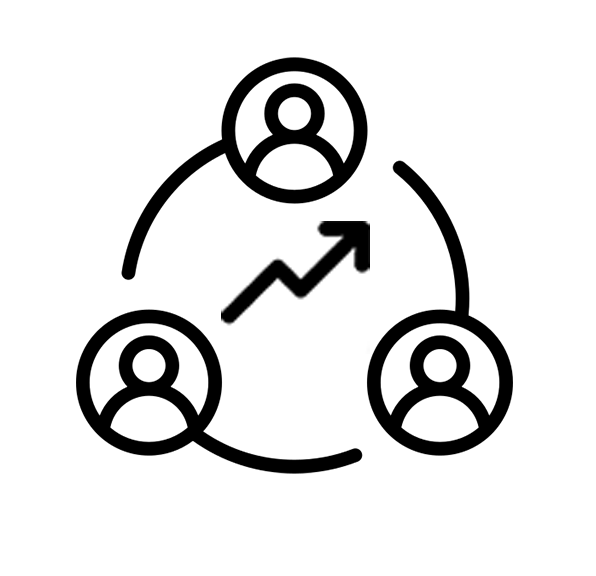
Social Inclusion
According to the World Bank: “Social inclusion is the process of improving the terms on which individuals and groups take part in society—improving the ability, opportunity, and dignity of those disadvantaged on the basis of their identity.”
Social inclusion means to include all sections of society in the solutions towards addressing various sustainability challenges and its benefits, while also protecting all from the adverse impacts of these challenges. In other words, social inclusion encapsulates the spirit of the SDGs – the spirit of leaving no one behind. The journey towards a sustainable world should not have winners and losers. This requires us to pay particular attention to the most vulnerable and marginalized groups.
For instance, the rag picker community in India (estimated to be between 1.5-4 million) plays a vital role in the informal economy by collecting, sorting and segregating waste and then trading it. They help clean up a significant proportion of the 62 million tonnes of waste generated annually in India, and this also is their source of livelihood. These ragpickers do not have any job security, salary or dignity. They are exposed to cuts, infection, respiratory diseases and tuberculosis apart from poverty, humiliation, harassment, and sexual abuse on the streets (India Spend). As we move towards becoming a zero-waste India, the livelihood source of this community stands at risk. It is essential to include rag pickers in this transition towards a zero-waste India by ensuring they are trained to handle and manage waste in a safe way, and also trained for other new jobs, as well as provided formal work opportunities that ensure their wellbeing.
 To Read
To Read
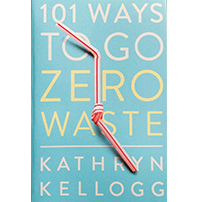
‘101 Ways To Go Zero Waste’ by Kathryn Kellogg
Did you know that every piece of plastic created since the 1950s still exists? This book is a handy beginners guide to transition into an (almost) zero waste lifestyle.
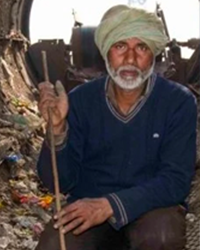
More Than a Waste Management Site
This photo essay offers a glimpse into the Ghazipur landfill in Delhi where hundreds of informal workers segregate, recycle, and circulate waste back into the economy.
 To See
To See
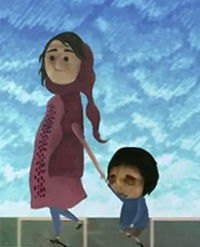
7 Short Films on Human Rights
Watch these videos recommended by Amnesty International’s human rights education network to learn about the reality of life as a refugee.
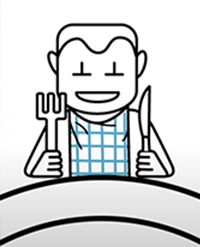
Why Do We Need to Change Our Food System?
Every day we have to eat, just like the other 7.2 billion people on the planet. By 2050, at least 2 billion more people will be added to the population. In this short video, explore three reasons why we need to transform the way we eat and consume our food, and learn how zero hunger also requires food waste to be zero.
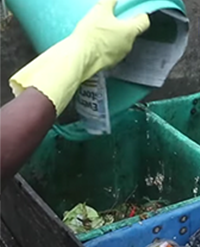
Zero Waste Community in India’s Capital!
In this short video, residents in part of India’s capital New Delhi share how they have created the city’s first ‘zero-waste’ community.

Story of Plastic – Where Does it Come From and Where Does It Go?
This short animated video takes us through the life cycle of plastic, revealing the true causes and consequences of the global plastic crises.
 To Listen
To Listen
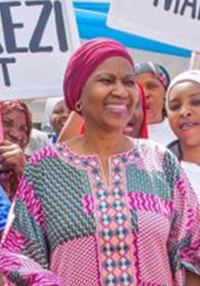
Empower Your Women
“If anything works for women, in any country, it is most likely to work for most people. If you want to address the majority of the people who really need you, target women.” In this podcast, Phumzile Mlambo-Ngcuka – Executive Director of UN Women who was born and raised in South Africa and as a young teacher joined the struggle to end the apartheid, shares anecdotes about her friendship with Nelson Mandela and describes what led her to her leadership on women’s rights and gender equality.
 To Play
To Play
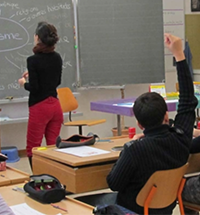
Three Education Activities for Young People to Challenge Discrimination
Explore resources by Amnesty International, including artwork and a movie discussion guide on racial discrimination, and activities to learn more about discrimination against minority communities.
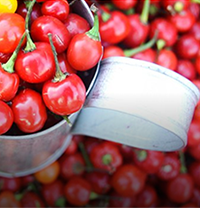
Fight Food Security with Awareness
Step into the shoes of other people to understand how food insecurity affects people in different ways by playing this Food Security Game developed by the Peace Corps.
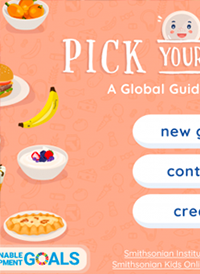
‘Pick Your Plate’ – A game by Smithsonian Institution
Join Plato to learn about building healthy meals and meet your daily nutritional needs within your budget. Pick your favorite plates for morning, midday, and evening meals. Pick Your Plate! A Global Guide to Nutrition is an educational nutrition game to help students build healthy meals while using nutritional guidelines from countries around the world! The game is available as a website for desktop and laptop computers and as an application on Amazon Apps & Games Store, Apple App Store, or Google Play Store.
In his writings, SGI President Daisaku Ikeda urges societies to adopt a more humanistic life guided by the belief that each life is worthy of respect, each life deserves to live with dignity. This ethos is guided by the spirit of Buddhist compassion and humanism.
In sharp contrast to this ethos lies the violence of food insecurity. Food insecurity can be defined as a lack of regular access to enough safe and nutritious food for normal growth and development and an active and healthy life. This may be due to unavailability of food and/or lack of resources to obtain food. Food insecurity can be experienced at different levels of severity (FAO). Hunger and inequality are inextricably linked. Who are the worst victims of extreme hunger? Invariably, it is the poorest and most marginalized sections of the population of any country who experience this greatest deprivation of hunger.
It could also be said that hunger has a woman’s face. In 2021, 150 million more women faced hunger than men, a rise of roughly 8.4 times since 2018 (CARE, 2022). This could be because women and girls prepare most of the world’s household meals and agricultural produce yet, when faced with tough situations, they are the first ones to go hungry. Globally, almost one third of employed women work in agriculture, yet only 13 per cent women are landholders (UN Women website). Not having access to land, credit, technology and market makes women farmers or female heads of households and their children more vulnerable to food insecurity. Recent research establishes a direct correlation between gender equality and food security (CARE, 2022), and strengthens the need to enable women and girls to have better access to information, resources, services, decision-making, education and economic opportunities, which will, in turn, improve the community’s food security and nutrition (WFP, 2023).
Achieving the goal of ‘zero hunger’ is not merely a matter of increasing food production, as estimates indicate that currently the world produces enough food to feed all the people on the planet, but more of addressing the gaping structural drivers that cause hunger – war, climate change, recession, in addition to food wastage, along the supply chain issues (Global Hunger Index 2022, p. 19)
Guided by the spirit of interdependence, President Ikeda called for greater international cooperation for the creation of a world food bank to secure stable food supplies, framing it as a starting point for all efforts to combat poverty. These reserves could be distributed as emergency relief during a food crisis or released onto the market to stabilize prices (Ikeda, 2009 peace proposal). Such a move would ensure that those who are exposed to great danger have the support of people in their immediate surroundings on whom they can call for support. Our local communities play a very important role in this regard.
With regards to waste reduction, President Ikeda advocated for the promotion of the “3 Rs” of Reduce, Reuse and Recycle in all spheres of life and society, including in the local communities. In this way, by working cooperatively to make waste reduction and recycling an intrinsic part of people’s lives, the local community serves as ground-zero for launching a powerful transition towards a zero discrimination, zero hunger and zero waste society.
The first Soka Gakkai President, Tsunesaburo Makiguchi urged people to lead a life of conscious engagement and shared living. Dr Ikeda affirms that “the basis for the conscious pursuit of shared living is found in an appreciation that people who live under the shadow of severe threats are essentially no different from ourselves” (2020 Pease Proposal). Therefore, it is crucial that we develop real awareness of ourselves as citizens of Earth, linked by mutual and indissoluble bonds.
Building a Zero Waste Society through Adopting Sustainable Human BehaviorDr Sanjay Mittal | Men’s Division | Jaipur
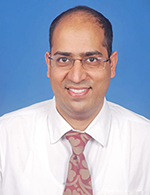
I am a urologist by profession. I became a voluntary member of the Bharat Soka Gakkai (BSG) in the year 2018, and through BSG, I encountered my lifelong mentor Dr Daisaku Ikeda, President of the Soka Gakkai International.
In 2022, I became aware of the ‘BSG for SDG’ initiative, which emphasizes on ‘sustainable human behavior’, that is, a fundamental change in a single individual (human revolution) which must be sustained over a long term period (sustainable behavior), so that it can become the transformative force to change the world for the better.
The more I studied and understood about ‘sustainable human behavior’, the more I realized that in order to transform our land and our environment, we have to change our mindset, and move away from selfishness to develop a mind for the people and the environment at large. I understood the significance of Recycling, Reducing, and Reusing products in our day-to-day activities, which will also help achieve SDG 12 – Responsible Production and Consumption.
Taking inspiration from this initiative of ‘BSG for SDG’, I started pondering on what action I would like to take to achieve the SDGs; and thereafter, I decided to work on ‘Zero Waste’. I drafted a few action points at my end to create a zero waste society, and shared them with the members of my society where I live, as well as with my family, friends and staff of the hospital where I work. I started implementing a few of these changes in my daily activities. For example:
- In the Operation Theatre, we have replaced ‘use-and-throw one-time use operation kit’ with a metallic reusable operation kit. This way, we were able to reduce single plastic waste.
- Additionally, I, along with my family, have stopped using wrapping papers on gifts that we give on the occasion of birthdays or weddings.
- We have also started using washable cloth bags of various sizes in place of plastic bags when we go grocery shopping.
- At home, we store everything in steel containers rather than using plastic containers. This way we have been able to cut down the use of plastic from our home.
- Me and my family members also carry water in steel bottles and we encourage our friends to do the same.
With these small actions, I am able to create awareness on ‘zero waste’ amongst my friends and colleagues. Taking inspiration from my actions, many of the people in my environment have started taking their own small steps towards building a ‘zero waste society’.
I have learnt through my mentor Dr Daisaku Ikeda that our actions, no matter how small, can bring about a huge difference. I am determined to bring about a positive change in my society through my daily actions focused on ‘sustainable human behavior’.
Devoting Myself to Achieving the Goal of Zero HungerKomal Rathi | Young Women’s Division | Ghaziabad
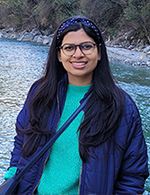
As a student in school and college I was devoid of any purpose in life. But a little later while pursuing my doctoral research when I encountered these encouraging and powerful words “Only labor and devotion to one’s mission give life its worth”, and other wonderful guidance by Dr. Daisaku Ikeda (President of the Soka Gakkai International), who is my mentor now, helped me to lead a life focussed on contributing to the happiness of others through my education and work. I developed a strong desire to work in the area of SDGs, and more specifically to work towards achieving the goal of SDG 2-Zero Hunger.
I joined a Gurugram based NGO as a Public Health Nutritionist that majorly works in the area of health, education and livelihoods. It was in the year 2022 when they ventured into the area of nutrition more deeply by implementing a programme aimed at improving nutritional status of children under six and livelihoods of the local self-help group women in the aspirational districts of two states of India.
I was given the responsibility to design the supplementary hot cooked meals for children 6 months to 3 years as well as train the self-help group women on various aspects who would be cooking these meals. Better nutrition is related to improved infant, child and maternal health, stronger immune systems, safer pregnancy and childbirth. People with adequate nutrition are more productive and can create opportunities to gradually break the cycles of poverty and hunger.
We as a team did several ground visits to understand the challenges, dietary habits and the local context in Vidisha district of Madhya Pradesh (MP) and Mayurbhanj district of Odisha. Initially, traveling was tiring and as a team we were required to come up with solutions to address the implementation challenges on the ground as this was probably one of the first such initiatives for children under 6 years. Undernutrition among children is a major threat to life. Deeply understanding this and committed to win, I took the challenge to do my best and was able to bring forth the wisdom to do it just right.
After one year of intense hard work of the entire team and great leadership of our programme director, the project took off on the ground on 27 January 2023 as a pilot, and soon, 10,000 undernourished children would be receiving these cost effective nutritious meals in the entire block in MP.
I will also be supporting the training of the women who would be cooking these meals under the Government of India’s largest supplementary nutrition program for children under 6 years of age. I am wholeheartedly striving for the great success of the project and if this pilot is successful, it may get scaled up in other districts of Madhya Pradesh, and thus, directly contribute to SDG 2 (Zero Hunger). Towards 2030, I will sincerely work to eradicate undernutrition from India.
 SDG Tip for Daily Life
SDG Tip for Daily Life

Know Your Waste!
In this infographic learn about different kinds of waste and how to manage it!
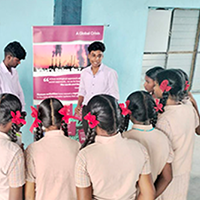
Updates
1) Bharat Soka Gakkai (BSG) organizes the ‘Seeds of Hope & Action (SOHA): Making the SDGs a Reality’ exhibition at various educational institutes
The ‘Seeds of Hope & Action (SOHA): Making the SDGs a Reality’ – a sustainability focused exhibition was organized by BSG at ITI, Nand Nagri, Delhi on 12th January; at Vivekananda College, Delhi on 12th and 13th January; at All India Institute of Medical Sciences (AIIMS), New Delhi, on 19th and 20th January; at PSN College of Engineering & Technology, Tirunelveli, Tamil Nadu on 24th and 25th January; and at VNR Vignana Jyothi Institute of Engineering & Technology, Hyderabad on 24th and 25th January 2023.
The exhibition is a joint initiative of Bharat Soka Gakkai (BSG) and Earth Charter International. SOHA is a 25-panel exhibition which is held across various educational institutes with the aim to spread awareness about sustainability among the younger generations; encouraging them to overcome feelings of powerlessness and highlight the fact that a single individual can initiate positive change. The SOHA exhibition raises awareness on climate change, the SDGs and the role of youth.
Read more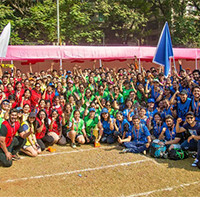
2) BSG organized a Youth Sports Festival for its members in Delhi, Mumbai, Mohali, Kolkata & Bangalore
To encourage its members to lead a youthful and healthy lifestyle, Bharat Soka Gakkai organized a Youth Sports Festival on 19th February 2023 across the 5 cities of Delhi, Mumbai, Mohali, Kolkata & Bangalore. Thousands of young members from BSG joyfully participated in the sports festival and made a pledge to lead a healthy and physically active life, thereby making sure they contribute to SDG 3 – Good Health and Well-being.
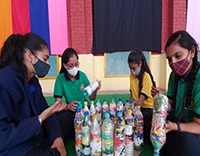
3) Students of Vivekananda Kendra Vidyalaya, Hurda and Vivekananda Kendra Vidyalaya, Rishabhdev recycle waste plastic bottles to make eco bricks
Vivekananda Kendriya Vidyalaya, Hurda, and Vivekanadna Kendra Vidyalaya, Rishabhdev, where BSG has established SDG Clubs, undertook the task to create eco-bricks made by recycling plastic bottle waste. This initiative was undertaken by the students of class IX and XI to promote the collaborative process as a means to encourage communities to take collective responsibility for their used plastic and to use it to produce a useful product. Students collected the waste plastic bottles and paper mache was prepared and pasted on the plastic bottles. Sculptures were made by using paper mache, which were then painted. Eco bricks bottle sculptures were decorated and exhibited at Bhilwara Art Fest. The students were able to build up their knowledge and skills that help to develop long term good habits and reduce personal waste consumption. The SDG Club team has produced creative sculptures out of sustainable Eco-bricks by implementing the circular economy and its three guiding principles—the 3 R’s: reduce, reuse, and recycle. Eco bricks are a sustainable way of reusing non- biodegradable plastic waste since it is considered to be a long-lasting and robust material. It keeps plastic out of the environment and avoids pollution.
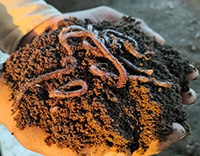
4) Students of Vivekananda Vidya Vidyalaya, Maral Sarovar, prepare vermicomposting for increasing crop production and soil fertility
As a part of the SDG Club activities which was formed by BSG in Vivekananda Vidya Vidyalaya, Maral Sarovar, the students participated in an initiative called the Jaivica Kushwah Initiative. Under this initiative, the students made organic fertilizers to assist local farmers and prevent the use of chemicals in soils. For manufacturing the vermicomposting, the students made six pits, each of the size 4x8x3 feet, and all these pits were filled up with cow dung with agricultural waste. Ten kilograms of earthworms were poured in the pits brought from Krishi Vigyan Kendra Dhar. Few days later, the students observed fine particles on the top layer of pits. These particles are part of the vermicompost.
Vermicompost, at present, is prepared on a small scale and packed in three kg packets. For the demonstration of compost, the students selected a few farmers who plant vegetables and flowers for domestic use at home or small fields. Free samples were given to some of the local farmers, and the students are getting good results.
Contact Us
 Any queries or suggestions regarding the newsletter can be addressed to sdg@bharatsokagakkai.org
Any queries or suggestions regarding the newsletter can be addressed to sdg@bharatsokagakkai.org
 To know more about the ‘BSG for SDG’ initiative, visit the BSG for SDG website
To know more about the ‘BSG for SDG’ initiative, visit the BSG for SDG website
 Download the ‘BSG for SDG’ mobile app
Download the ‘BSG for SDG’ mobile app
